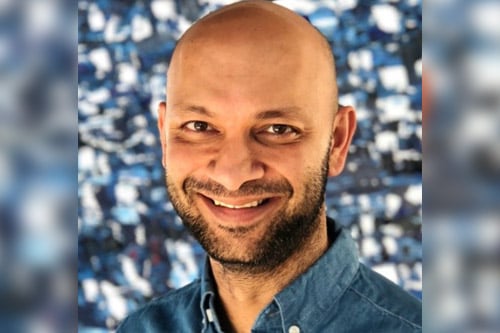
Equality doesn't have to mean disadvantaging one for the benefit of the other

Equality in the workplace is about more than just hiring diversely and fulfilling inclusive quotas – it’s a shift in mindset that needs to come from the very top.
We spoke to Alim Dhanji, chief operating officer at The LGBT Foundation – who revealed how being ‘out’ in an inclusive atmosphere helped his leadership skills.
So, what is The LGBT Foundation? According to Dhanji, it’s a community which strives for global equality.
“By harnessing the power and potential of blockchain technology and other technological innovations, the Foundation will foster greater acceptance of the LGBT community, drive positive social change for the community’s benefit, and protect vulnerable community members,” added Dhanji.
“By tokenizing the Pink Dollar, the Foundation will empower the LGBT community to exert its considerable economic might, provide a safe and secure environment to access cryptocurrencies and other products and services, and enable members to verify and protect their identities as required.”
We asked Dhanji how important he thinks diversity is in business at the moment, to which he replied “critical”.
“Now, more than ever, diversity in all forms is imperative for businesses to nurture innovation, gain a competitive edge, create a progressive workplace culture to attract and retain the best and brightest,” he continued.
“There have been many credible research studies concluding that diversity improves the bottom line. Businesses that don’t embrace diversity will be left behind.”
When employers go about implementing a supportive cultural structure in their organization, some can make the mistake of thinking that overcompensating in regards to LGBT employees is the answer. However, Dhanji is quick to point out that the real mission should be striving for ‘equality’ in all things.
“Equality doesn’t have to mean disadvantaging one for the benefit of the other,” he told us.
“Advancement of LGBT people requires having a workplace culture where everyone can be their whole-self with policies that aren’t discriminatory or exclusionary on the basis of sexual orientation. Talented LGBT people have choices - they will want to work where they won’t be held back for being themselves. By celebrating - not merely tolerating - diversity, a workplace will bring out the best from people particularly from those who have traditionally been marginalized.
“I joined TD as a vice president and was promoted to senior vice president. Being gay was never a factor in my promotion - as a concern nor as an advantage. However, being out publicly in a very inclusive culture enabled me to be a better leader. The tone was set from our CEO - I knew early on even as I joined TD through my final interview with Ed Clark (former CEO, TD) that being gay and out wouldn’t come in the way of a career at TD. Tone (from the top), culture and inclusive policies make it fair for advancing everyone, not just certain groups.”